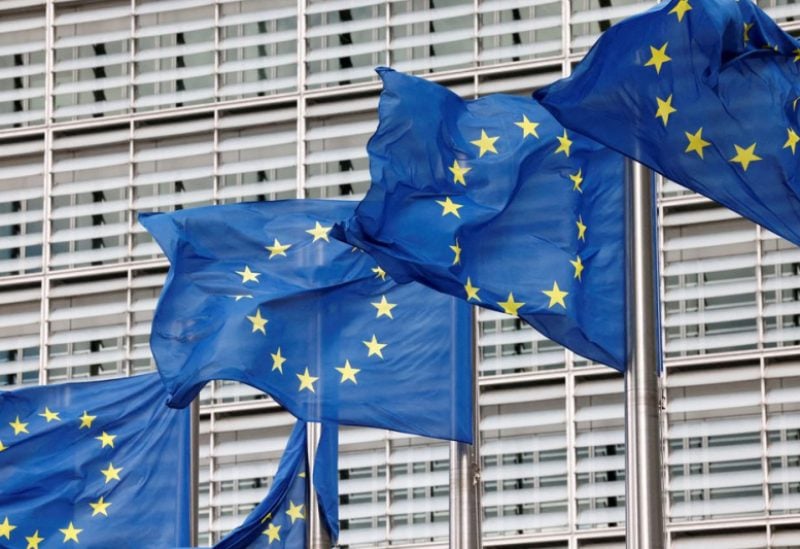
European Union flags flutter outside the EU Commission headquarters in Brussels, Belgium, September 28, 2022. REUTERS/Yves Herman
The European Union reached a political agreement on Tuesday to impose a carbon dioxide emissions price on imports of polluting goods like steel and cement, a groundbreaking program intended to boost European companies as they decarbonize. The decision came about after all-night negotiations.
Around five in the morning in Brussels, negotiators from EU nations and the European Parliament secured an agreement on the law imposing CO2 emissions penalties on imports of iron and steel, cement, fertilisers, aluminum, and energy.
Companies importing those goods into the EU will be required to buy certificates to cover their embedded CO2 emissions. The scheme is designed to apply the same CO2 cost to overseas firms and domestic EU industries – the latter of which are already required to buy permits from the EU carbon market when they pollute.
Mohammed Chahim, European Parliament’s lead negotiator on the law, said the border tariff would be crucial to EU efforts to fight climate change.
The aim of the levy is to prevent European industry from being undercut by cheaper goods made in countries with weaker environmental rules.
It will also apply to imported hydrogen, which was not in the original EU proposal, but which EU lawmakers pushed for in the negotiations.
Some details on the law, including its start date, will be determined later this week in related negotiations on a reform of the EU carbon market.
Currently, the EU gives domestic industry free CO2 permits to shield them from foreign competition but plans to phase out those free permits when the carbon border tariff is phased in, to comply with World Trade Organization rules. How quickly that phase-in happens will be decided in the carbon market talks.
According to Brussels, if a country has climate change policies that are equal to those of the EU, they may be exempt, and it has been argued that the United States may be exempt from the tax on this basis.
The Inflation Reduction Act’s subsidies for green technologies, which the EU has claimed could hurt European enterprises, have led to increased trade tensions with the United States and condemnation of the EU plan from nations like China.
The tariff is a component of an EU policy package aimed at preventing catastrophic climate change by reducing EU emissions by 55% from 1990 levels by 2030.